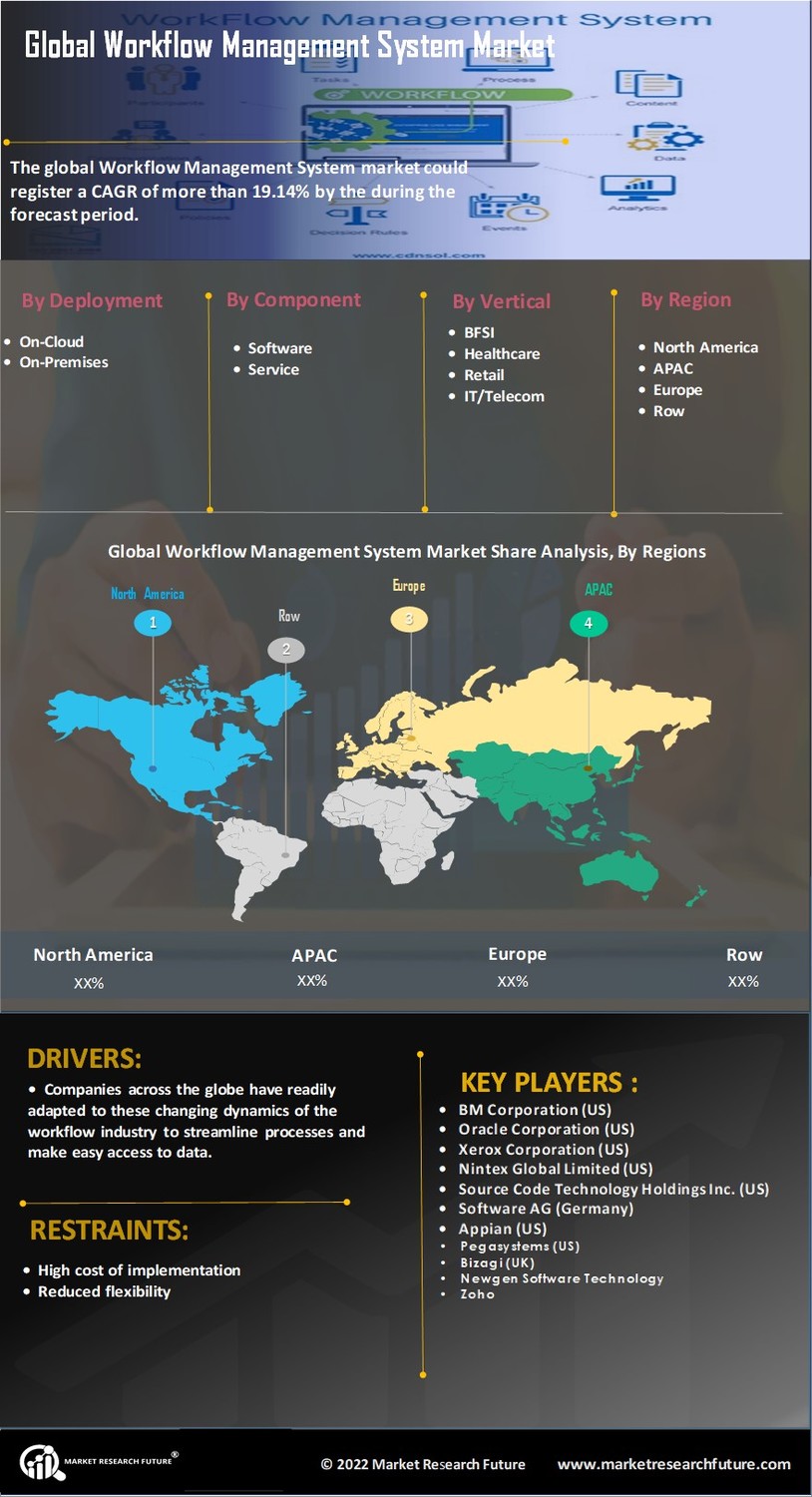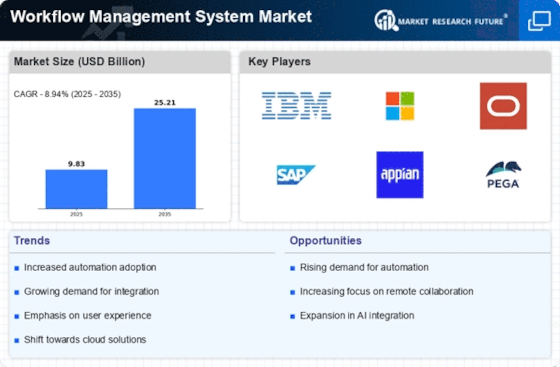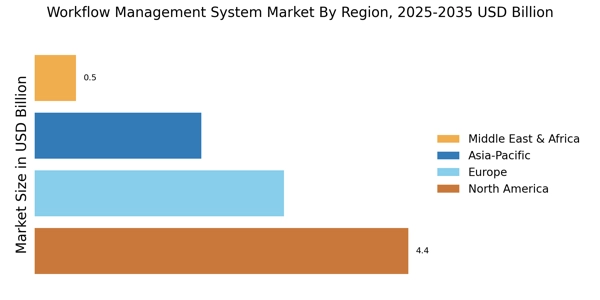Emergence of Remote Work Trends
The rise of remote work trends is significantly impacting the Workflow Management System Market. As organizations adapt to flexible work arrangements, the need for efficient workflow management solutions has become more pronounced. These systems enable teams to collaborate effectively, regardless of their physical location, ensuring that workflows remain uninterrupted. Data indicates that companies implementing workflow management systems for remote teams can experience a 25% increase in project completion rates. This shift towards remote work is not merely a temporary adjustment but appears to be a lasting change in the workplace, suggesting a sustained demand for workflow management solutions that cater to this new environment.
Rising Demand for Operational Efficiency
The Workflow Management System Market is experiencing a notable surge in demand for operational efficiency. Organizations are increasingly recognizing the need to streamline processes, reduce redundancies, and enhance productivity. This trend is driven by the desire to optimize resource allocation and improve overall performance. According to recent data, companies that implement workflow management systems can achieve up to a 30% increase in efficiency. As businesses strive to remain competitive, the adoption of these systems is likely to accelerate, further propelling the Workflow Management System Market. The emphasis on operational efficiency is not merely a trend but a fundamental shift in how organizations approach their workflows, indicating a long-term commitment to process improvement.
Increased Focus on Data-Driven Decision Making
The emphasis on data-driven decision making is reshaping the Workflow Management System Market. Organizations are increasingly leveraging data analytics to inform their operational strategies and improve decision-making processes. Workflow management systems play a crucial role in this shift by providing real-time insights and analytics capabilities. Companies that utilize these systems can enhance their ability to make informed decisions, potentially leading to a 20% improvement in strategic outcomes. As the importance of data continues to rise, the demand for workflow management solutions that facilitate data integration and analysis is likely to increase, further driving growth in the market.
Expansion of Digital Transformation Initiatives
The ongoing digital transformation initiatives across various sectors are significantly influencing the Workflow Management System Market. Organizations are increasingly investing in technology to modernize their operations and improve customer experiences. The integration of workflow management systems into digital transformation strategies allows businesses to automate processes, enhance collaboration, and improve data visibility. Recent statistics indicate that companies embracing digital transformation are likely to see a 40% increase in customer satisfaction. As organizations continue to prioritize digital initiatives, the demand for workflow management systems is expected to grow, positioning them as essential tools in the evolving business landscape.
Growing Need for Compliance and Risk Management
In the current business landscape, compliance and risk management have become paramount concerns for organizations. The Workflow Management System Market is responding to this need by providing solutions that facilitate adherence to regulatory requirements and mitigate risks. Companies are increasingly adopting these systems to ensure that their processes align with industry standards and legal obligations. Data suggests that organizations utilizing workflow management systems can reduce compliance-related costs by approximately 25%. This growing emphasis on compliance is likely to drive further investment in workflow management solutions, as businesses seek to protect themselves from potential legal repercussions and enhance their operational integrity.

















